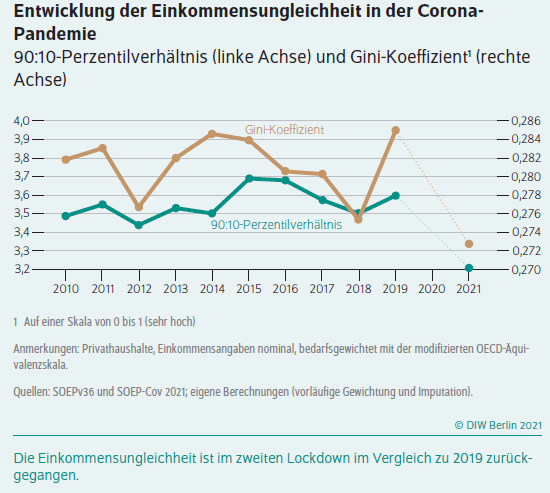
Interesting results by Markus Grabka @DIW_Berlin on changes in household #incomes during the #Covid_19 crisis in Germany: #inequality in monthly hh disposable incomes was _lower_ in early 2021 than in 2019
(1/4)
(1/4)

This is because self-employed workers - who in Germany have high average incomes - suffered substantial income losses, while other groups experienced stagnating or even rising incomes. Certainly a result of the comprehensive government emergency support (#kurzarbeit) 

These results are consistent with earlier research, e.g. by @ConchDAmbrosio, which suggested that disp. income inequality in European countries may have declined in the initial stages of the crisis because of strong government support for lower-income hhs
https://twitter.com/ecineq/status/1348950648549748738?s=20
@DIW_Berlin emphasises that this is only an assessment of the short-term effects. Emergency support (incl. #kurzarbeit) should not be withdrawn too quickly to avoid bankruptcies and job losses. Further support may be needed to help the self-employed cover their living expenses 

Here's the full brief: diw.de/de/diw_01.c.81…
• • •
Missing some Tweet in this thread? You can try to
force a refresh




